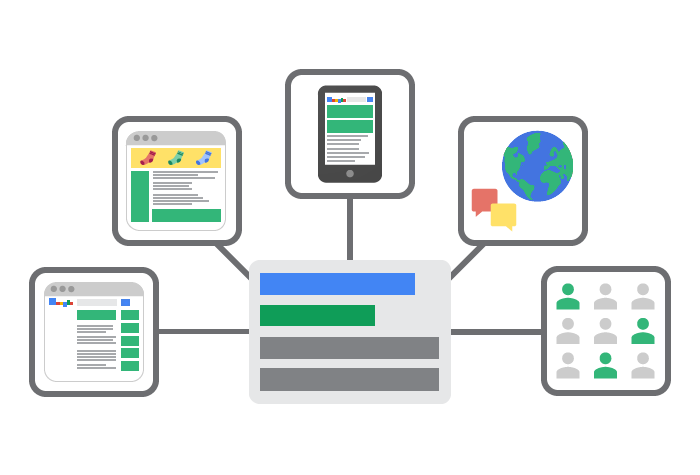It’s tempting to get carried away when talking to a potential client about how great the SEO is, and discussing the limitations of a particular campaign certainly isn’t something you’re looking forward to, especially when you’re dealing with a client who hasn’t had any previous experience with SEO – the fear that you might scare him away is understandable. However, not managing client’s expectations can have far-reaching consequences down the road, and it’s better to present all the limitations alongside the benefits right from the start.
What your client should know about keywords, rankings and competition
When the client tells you that he wants you to rank his website for this and this keyword, you should immediately understand two things: one, he’s been looking into search engine optimization, and two, he’s stuck in 2005. Not literally of course, but that tells you approximately how much educating will be needed for you and your client to get to the same page. You have to explain to them that it’s not about rankings for their chosen keywords (which are usually the worst possible keywords that exist, because they have come up with them based on what they do in the broadest sense), but about targeted traffic and conversions; so if the keyword they think they should chase is something as broad as “laser printers”, you have to explain that:
– There are over 25 million web pages competing for that term
– Top ranking websites are likely optimized for that, and many other search terms; they’ve probably been around for a while and they probably have tons of content and strong links, so even if they aren’t optimized, it still counts.
– This term includes competing not only against companies that sell printers, but also against many how to, digital photography, office supplies and other kinds of websites.
– Not many of the visitors they get once (if) they manage to rank will be their target market.
What you should teach them is that:
– You can help them get targeted visitors whose number is, yes, a lot smaller, but which are more likely to buy their product/service. Ranking #1-5 isn’t their business goal; their business goal is to get in front of the people who are searching for the product they’re selling, and the fastest way to achieve that is through building the authority of their website so that it ranks for a large group of targeted keywords which combined have a decent search volume.
– In order to help them to get more business leads faster, you have to rank their website for local keywords first.
– It will take time. And SEO is never done. But, to ease the pain, you can explain that, once their website gains some authority (and rankings), it will take much less effort (for them: money) to keep it there and to slowly move forward.
What your client should know about the content
Many of them start with the belief that, in order to succeed online, they have to have a website and then hordes of buyers will come to their doors. By now, if they have come to you, they have realized that the visitors won’t come by themselves. But they’re still stuck with the idea that, yeah! At least the website is finished! And you have to crush their belief once again. Sure, they don’t have to add more content, but it will make your job a hell of a lot easier, and it will make them look good in the eyes of their customers.
What’s your main responsibility here? To explain to them how they can’t throw just any content on their website (that’s usually how they tend to understand the need for fresh content for Google). They should understand the importance of unique content written by an expert, content that will be able to attract natural links. They are in the unique position to create that kind of content. You can help them with the topics and the formatting for Google – but the part that will appeal to human visitors should be on them.
Finally, your client should be aware that he should inform you about all the events, charities, press releases and everything else his business will be doing; you can use it to create even more links, and good ones too. The toughest thing that you have to teach him is that your services aren’t of the “pay and forget about it” kind – you are there to help, but he will need to cooperate. And for any of the business owners who might be reading this – beware of the agency who doesn’t require your involvement and only tells you what you want to hear!
Alex Duke is a blogger and Internet Marketing Specialist. He is also a part time blogger and a tech-fan. Here, Ben gave a few tips to the readers about how to compete with big companies when it comes to SEO and organic results based on his own experience while he was working in SEO campaign for moldbusters.com
How To Manage Clients' Expectations When Selling SEO Services




